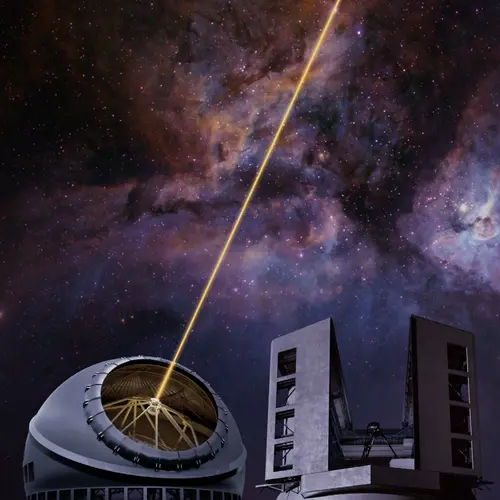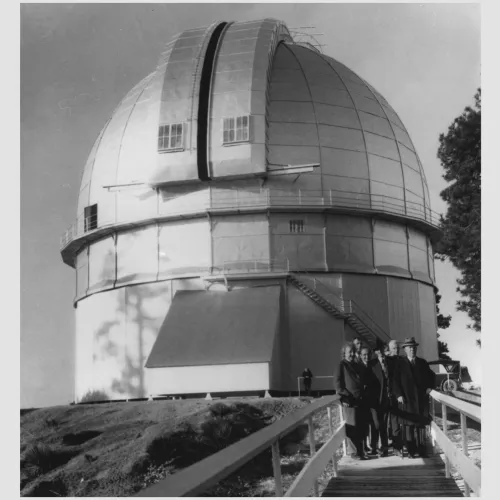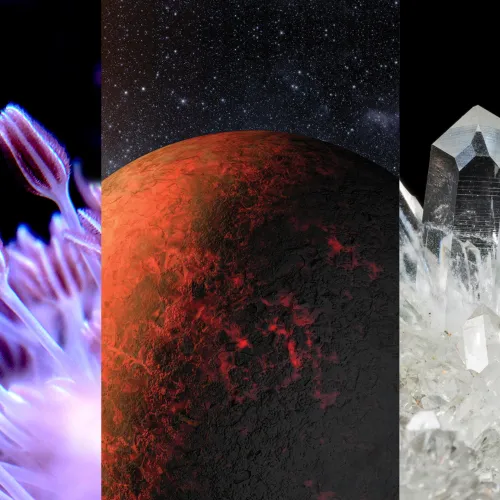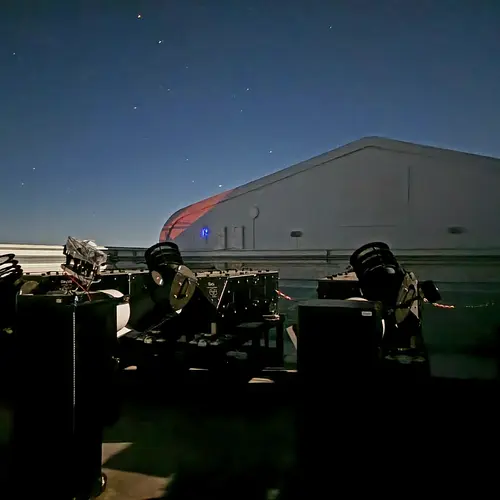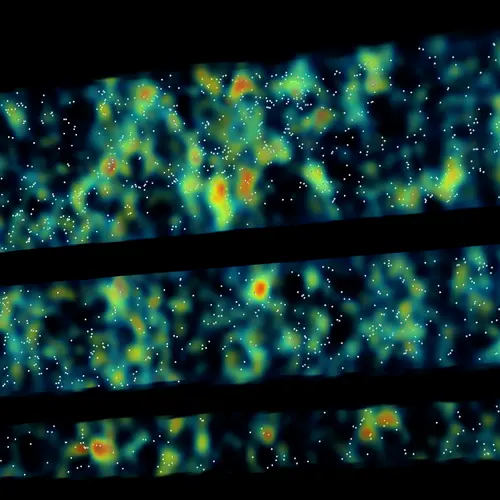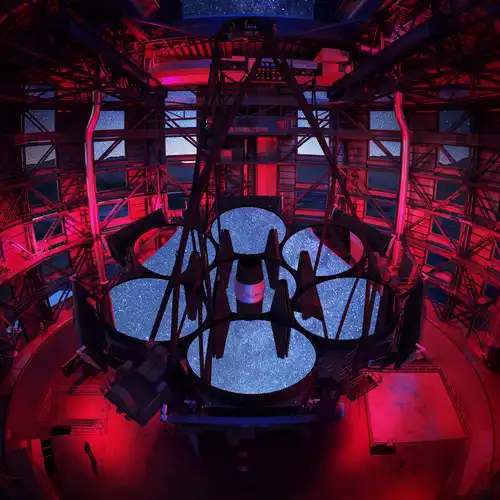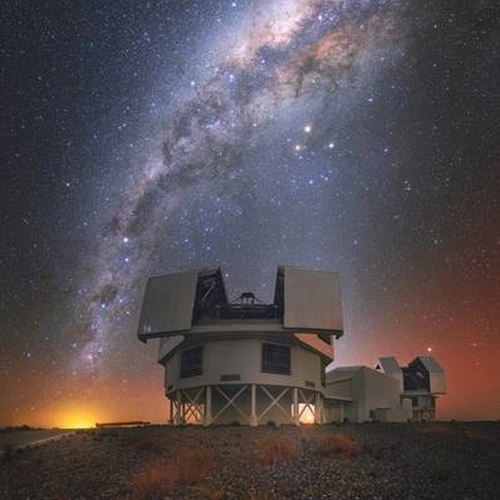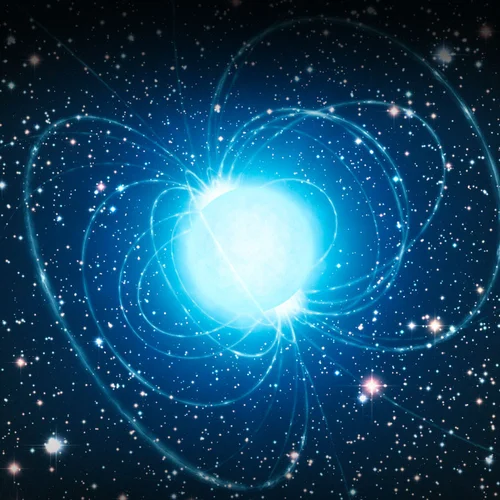
Washington, D.C.—The Carnegie Science Board of Trustees today announced that Dr. John Mulchaey, a distinguished scientist and dedicated leader with more than three decades of service to the organization, has been appointed the institution's 12th President, effective immediately. Mulchaey has served as Interim President since October.
“John’s sustained contributions to Carnegie Science, both as a scientist and leader, have earned him the respect of his peers and the trust of the board,” said Craig Barrett, chair of the board of trustees. “His visionary approach to research, outreach, and institutional advancement makes him the right leader to steer us not only during a time of significant opportunity, but as fundamental science sees extraordinary threats and disruption.”
Mulchaey began his career with Carnegie Science in 1994 as a postdoctoral fellow before joining the scientific staff. Over the years, he has held numerous leadership positions. Since 2015, he has been the Director and Crawford H. Greenewalt Chair of the Carnegie Science Observatories. During his decade in this role, the Observatories instigated several revolutionary instrumentation projects that will maintain the institution's position at the forefront of astronomy, launched the Carnegie Theoretical Astrophysics Center, and greatly expanded its education and outreach efforts.
His stewardship of the division’s dedicated community of friends and supporters led to an anonymous bequest of $34.8 million to fund staff and instrument development at the Observatories, representing the institution's largest gift since it was founded by Andrew Carnegie.
In 2021, Mulchaey was named the organization's Science Deputy, charged with identifying and advancing bold, boundary pushing ideas that will chart the course for Carnegie’s scientific future and with fostering a culture in which groundbreaking scientists can thrive. He also led Carnegie’s efforts to advance cornerstone initiatives, such as the construction of the Giant Magellan Telescope (GMT) at its Las Campanas Observatory in Chile and expanded the organization's relationships with Caltech other Southern California research institutions—laying the groundwork for the integration of the Biosphere Sciences and Engineering Division in Pasadena.
A renowned researcher, Mulchaey has made major contributions to astrophysics, particularly in understanding galaxy groups and clusters. He led the team that uncovered the presence of dark matter in galaxy compositions and contributed to the discovery of the first known binary quasar system. His work exemplifies Carnegie Science’s tradition of pioneering research that addresses fundamental scientific questions.
As president, Mulchaey will focus on strengthening Carnegie Science’s role as a leader in multidisciplinary research and innovation. His priorities include driving completion of the GMT, a next-generation telescope poised to revolutionize astronomy and answer some of the most pressing questions about the cosmos; supporting a novel genomes-to-ecosystems approach to tackling climate change; protecting fundamental science against substantial external vulnerabilities; and cultivating the next generation of scientific talent through robust mentorship and educational programs.
“I am deeply honored by the Board of Trustees’ confidence in me to lead this extraordinary institution that I love so deeply,” said Mulchaey. “Carnegie Science’s legacy of discovery and its commitment to pushing the boundaries of human knowledge inspire me every day, as do the scientists and staff who devote their intellect and skills to elucidating the interlocking intricacies of life and our dynamic planet and revealing the wonders of the cosmos. Together, we will continue to build on this foundation, explore new frontiers, and ensure our work has a meaningful impact on society.”
Mulchaey’s appointment comes at a time of significant opportunity for Carnegie Science as it works to solidify its position at the forefront of global scientific discovery. His leadership will guide the institution in addressing the critical questions of our time while restoring belief in science, and fostering innovation, collaboration, and public engagement.
A resident of Pasadena, Mulchaey earned his Ph.D. in Astrophysics from the University of Maryland and a bachelor’s degree in Astrophysics from the University of California Berkeley. He is a member of the American Astronomical Society’s Committee on Astronomy and Public Policy and the Weber Prize Selection Committee. In 2020, Mulchaey received the Rotary Club's Helios Humanitarian Star award in recognition of his contributions to astronomy outreach and education efforts nationwide.

Recent News
There's hot competition to stay on the cutting edge of optical astronomy.
“Until you’ve actually seen (a total eclipse), it’s almost impossible to describe,” said Mulchaey.
“20 years ago, basically people started going, ‘Okay, to really make the next leap in astronomy, we need bigger telescopes,’” Mulchaey says.
“This is where the magic happened,” Mulchaey said, looking admiringly into the rafters of the massive dome.
Select Press Releases
Public Science Talks
Mulchaey is a dedicated public speaker, sharing the wonders of astronomical discovery with space enthusiasts all over the United States.
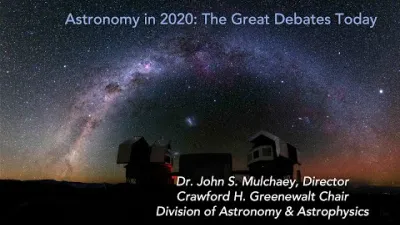
Astronomy in 2020: The Great Debates Today - Dr. John Mulchaey
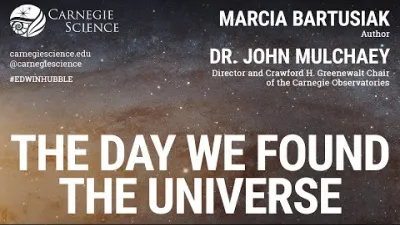
The Day We Found the Universe - Marcia Bartusiak and Dr. John Mulchaey
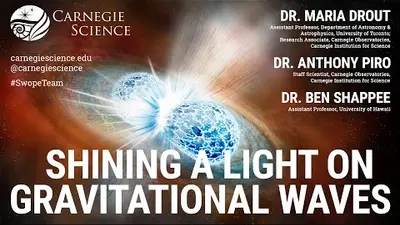
Shining a Light on Gravitational Waves - Dr. Maria Drout, Dr. Anthony Piro, and Dr. Ben Shappee
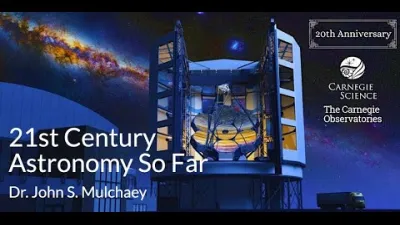
21st Century Astronomy So Far - Dr. John S. Mulchaey

